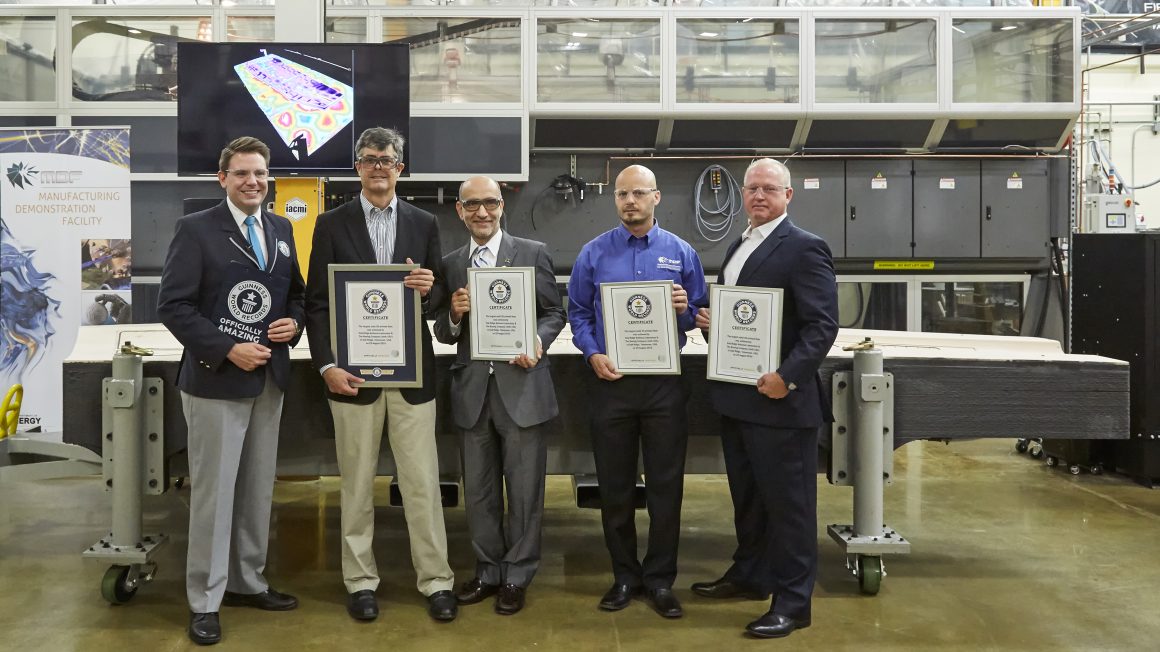The establishment of a state-of-the-art 3D printing facility in Jebel Ali, Dubai, at a cost of Dh20 million, represents a significant advancement in the pursuit of sustainability within the aviation industry. By producing lightweight replacement aircraft components, this facility aims to enhance efficiency, reduce transportation costs, and minimize the carbon footprint associated with air travel.
The aviation sector has proven to be a challenging field to address in terms of sustainability, as it contributes up to 3 percent of global carbon emissions. While the development of electrified aviation is still in its early stages, potential solutions may lie in the manufacturing processes and maintenance of aircraft.
The Paradigm 3D printing hub in Jebel Ali offers a comprehensive solution for the design, production, and post-processing of certified aircraft components. By utilizing this facility, the need to import spare parts from Europe can be significantly reduced, as lighter replacement parts can be created within a matter of hours.
Furthermore, the incorporation of internal structures with components weighing up to 60 percent less in replacement seating can make a substantial contribution to reducing the overall weight of aircraft and, consequently, fuel consumption.
Equipped with industrial 3D printers from Stratasys Ltd, the hub has the capacity to produce up to 2,000 parts annually. With plans to expand production to 20,000 components within the next decade, this facility is poised to revolutionize the aviation industry by providing a sustainable and efficient means of manufacturing aircraft components.Helping airlines and the environment
“Having this capability in Dubai will reduce the lead time for replacement parts by weeks, possibly even months, helping airlines keep their planes in operation more predictably,” said Andreas Langfeld, Stratasys’s president for Europe, Middle East and Africa.
“This will not only reduce operational costs, particularly around logistics, but it will also reduce the environmental impact associated with transportation of these spare parts.”
Around the world, leading aircraft and cabin interior product manufacturers including Boeing, Collins Aerospace, BAE Systems, Airbus, Diehl Aviation and Safran Seats, use additive manufacturing systems from Stratasys.
Paradigm 3D’s factory is currently the only service provider in the Middle East certified to produce 3D-printed parts for private and commercial aircraft.
Printed components include the seat trays, foot stools and arm rests found on most passenger airliners.
Producing spare parts in Dubai – one of the world’s busiest aviation hubs – should reduce the need for importing components that can be subject to delays in the global supply chain, the company said.
“When a commercial aircraft has a service call, usually there is a lot of labour involved,” said Scott Crump, who developed the Fused Deposition Modelling (FDM) used in the 3D printing process.
“There might be around 400 parts, including the rivets, that comprise a commercial airline seat.
Then, a button is pressed on our machine, resulting in the production of the desired part. The facility in question is the first in the Middle East to be capable of manufacturing parts in accordance with EASA Part 21G aerospace regulations, which serve as an international safety standard. The complex primarily produces various components for aircraft interiors, such as lavatories, electronic cooling ducts, environment control systems, gaskets, and air intake manifolds. Mr. Crump emphasized the importance of time in the refurbishment process, as every second and hour of downtime counts. The true advantage lies in the consolidation of state-of-the-art yet complex assemblies into a single production. Commercial airliners consist of numerous certified and regulated individual parts, with a fully assembled Airbus A320 comprising approximately 340,000 separate components. The 3D-printed materials adhere to the same safety regulations as traditional aircraft building materials and possess equivalent strength. Janis Jatnieks, the CEO of AM Craft, a company that provides manufacturing services for airlines, stated that the Paradigm 3D facility will benefit both regional and global aerospace companies by offering decentralized and on-demand manufacturing. This facility serves as a comprehensive solution for designing, manufacturing, and post-processing certified aircraft components, which can be produced exactly when and where they are needed for immediate installation.

